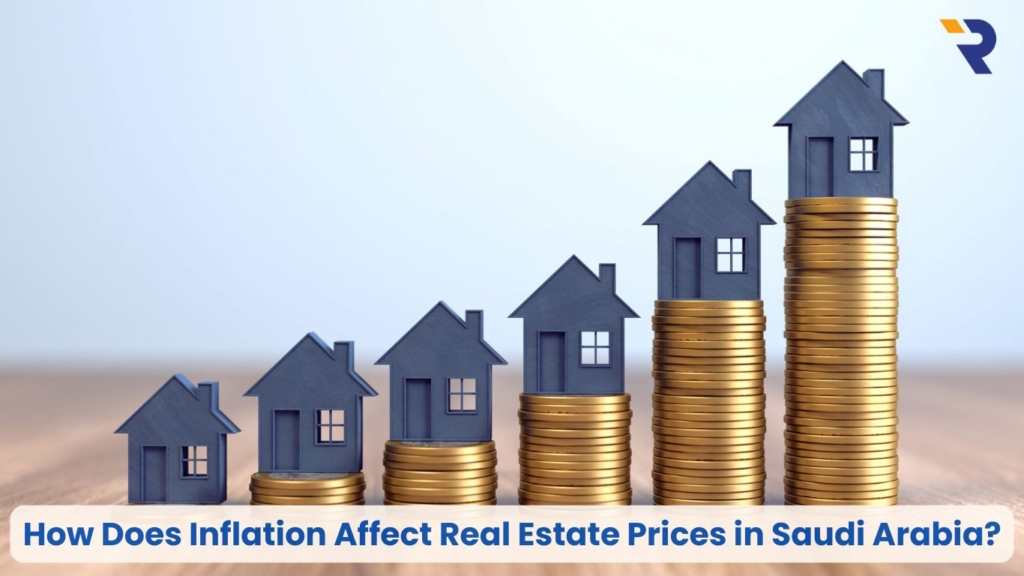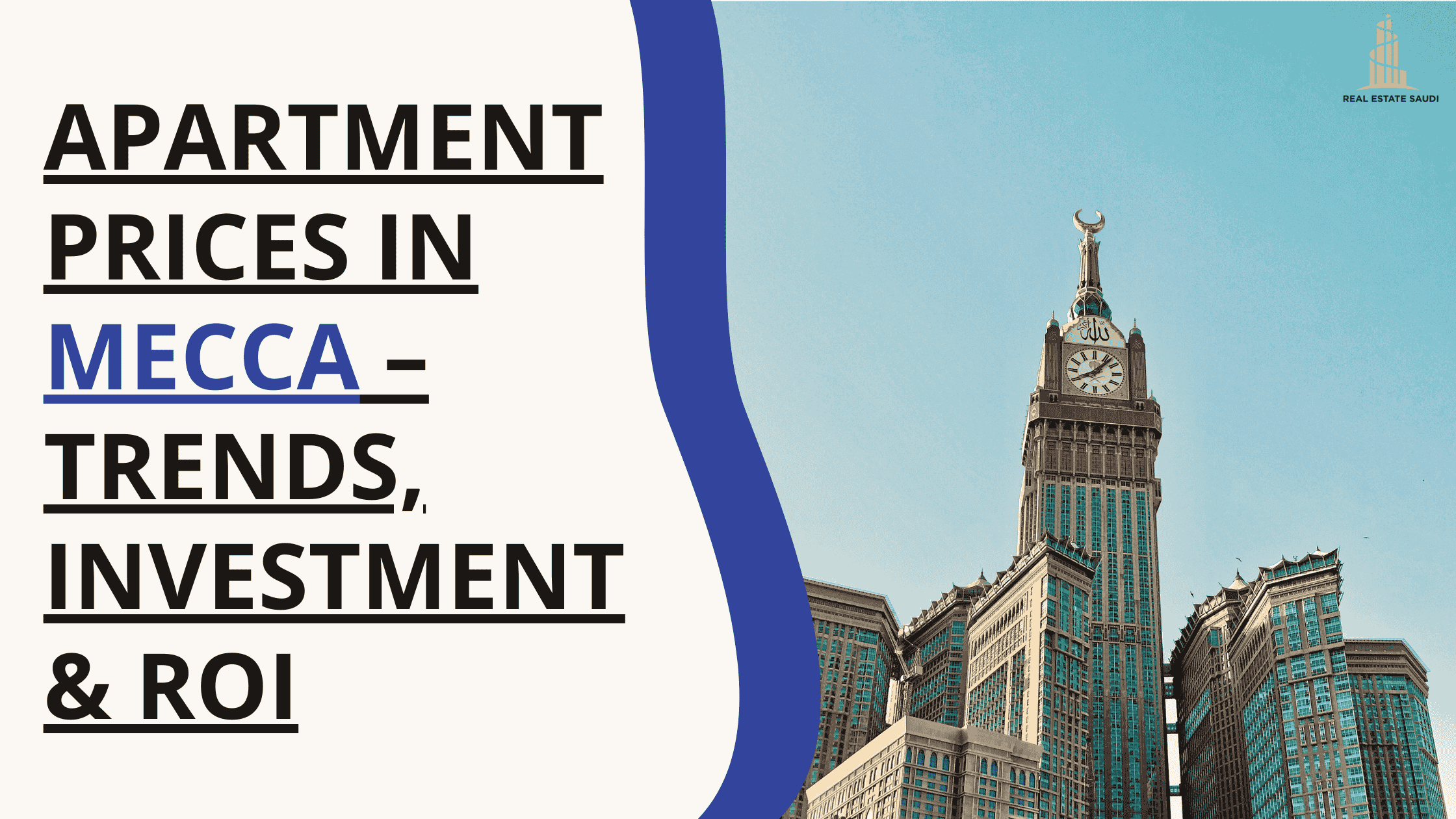The Relationship Between Inflation and the Real Estate Market
Inflation is a term we hear almost daily, but what does it actually mean? In simple terms, inflation refers to the rising cost of goods and services over time. In the context of real estate, inflation can cause both construction and property prices to increase, affecting affordability, demand, and investor strategy.
When inflation rises, the purchasing power of money decreases. For real estate, this often means that buyers can afford less, while sellers and developers raise prices to keep up with increased costs. This dynamic is especially relevant in the Kingdom today.
According to the General Authority for Statistics (GASTAT), Saudi Arabia saw inflation rise to 2.3% in early 2024, driven largely by transport, housing, and utility costs. Meanwhile, the cost of key construction inputs like steel and cement jumped by 8–12%, directly affecting new housing developments.
The Saudi riyal, pegged to the U.S. dollar, gives the country some buffer against volatile global currencies. However, imported materials and reliance on international labor still make the real estate sector vulnerable to global inflation trends.
Understanding the inflation and real estate prices in Saudi Arabia connection is key for making smart, future-proof property investments.
The Impact of Inflation on Supply and Demand in the Saudi Real Estate Market
➤ On Demand
Inflation affects different income groups in different ways. Here’s how demand shifts:
- Reduced Affordability: Middle-income and first-time buyers feel the pinch the most. Mortgage repayments increase, and many shift toward renting.
- Investor Behavior: Wealthy buyers often shift funds to real estate as a hedge against inflation, increasing demand in prime areas.
- Delayed Buyer Decisions: Uncertainty leads some buyers to delay purchasing in hopes of better deals later.
➤ On Supply
- Rising Input Costs: Builders face higher prices for materials and labor, which discourages new project launches.
- Slower Construction Timelines: Some developers slow down delivery to manage costs, affecting overall housing availability.
- Higher Listing Prices: To maintain profit margins, sellers pass increased costs to buyers.
➤ By Property Type
- Residential Units: Most affected due to their reliance on affordability and financing.
- Commercial Properties: Slightly more stable due to consistent rental income.
- Investment Properties: Seen as long-term inflation hedges, especially in urban hubs.
📌 Example: In 2024, Riyadh’s construction cost index rose by 11%, contributing to a 12% price hike on new apartments in central zones.
Understanding this real estate market inflation impact helps developers plan their projects and buyers time their purchases wisely.
Real Estate Market Trends in Saudi Arabia Amid Inflation
Inflation doesn’t stop the property market — it simply shifts its direction. In Saudi Arabia, the Vision 2030 housing program plays a key role in creating demand and regulating supply.
🔸 Key Market Trends:
- Sustained Urban Demand: Cities like Riyadh, Jeddah, and NEOM continue to attract buyers due to mega-projects and job opportunities.
- Affordable Housing Saudi Arabia: Programs like Sakani offer subsidized homes and financing to help citizens cope with inflation.
- Smart & Luxury Property Boom: Investors are favoring smart homes, luxury apartments, and gated communities for rental returns and asset protection.
- Remote Buying & PropTech: Virtual tours, blockchain-based transactions, and AI price estimations are becoming standard.
- High-Net-Worth Resilience: Wealthier buyers continue purchasing despite inflation, driving demand for upscale units.
The Saudi Arabia housing market trends show that demand is shifting—not shrinking.
Strategies for Coping with Inflation in the Real Estate Market
While inflation can seem like a threat, strategic buyers and investors can turn it into an advantage. Here are proven real estate investment strategies inflation won’t stop:
✅ 1. Target High-Growth Zones
Focus on regions backed by government investment or Vision 2030 projects — these areas tend to appreciate regardless of inflation.
✅ 2. Choose Fixed-Rate Mortgages
Avoid the shock of rising interest rates. A fixed-rate mortgage in Saudi Arabia locks your monthly payments, giving you peace of mind.
✅ 3. Use Cost-Efficient Construction Methods
If you’re a developer, modular construction and smart materials can reduce inflation-linked costs.
✅ 4. Diversify Your Portfolio
Mix residential, commercial, and industrial real estate to spread risk across segments.
✅ 5. Leverage Government Support
Use programs like Sakani and other Ministry of Housing initiatives for reduced down payments and subsidized financing.
✅ 6. Monitor Inflation and Market Trends
Regularly check updates from SAMA, GASTAT, and industry sources. Stay ahead by consulting with professionals.
✅ Coping with inflation as a buyer/investor is all about planning ahead and working with expert partners.
Book a Free Real Estate Consultation with Real Estate Saudi
Navigating property decisions during economic uncertainty doesn’t have to be stressful. At Real Estate Saudi, we help you make informed, future-focused decisions.
Our services include:
- Detailed analysis of property prices during inflation Saudi Arabia
- Guidance on fixed-rate mortgage Saudi Arabia options
- Customized advice for your income and investment goals
- Access to government-supported listings, affordable housing, and premium developments
Need expert advice on navigating the property market during inflation? Contact Real Estate Saudi today for a free consultation tailored to your goals.
Certain FAQs
How does inflation influence property prices in Saudi Arabia?
Inflation typically leads to higher property prices as the costs of construction materials and labor increase. Developers often pass these elevated expenses onto buyers, resulting in a general rise in real estate prices. For instance, in Q2 2024, Saudi Arabia experienced a 2.8% increase in residential real estate prices, reflecting the impact of inflation on the housing market.
What role do housing costs play in Saudi Arabia's inflation rate?
Housing costs are a significant component of Saudi Arabia’s inflation rate. In November 2024, the country’s annual inflation reached 2%, primarily driven by a 10.8% surge in housing rents, with apartment rental prices increasing by 12.5%. This underscores the substantial influence of housing expenses on overall inflation.
Are certain types of properties more affected by inflation than others in Saudi Arabia?
Yes, different property types can be affected variably by inflation. In Q4 2024, villa prices in Saudi Arabia saw a notable increase of 6.5%, whereas apartment prices rose by 2.9%. This indicates that larger properties like villas may experience more significant price hikes during inflationary periods compared to smaller units.
How can investors protect their real estate investments in Saudi Arabia from inflation?
Investors can mitigate inflation’s impact by diversifying their property portfolios across various types and locations, focusing on long-term investments, and utilizing fixed-rate financing options. Engaging with professional real estate consultants can also provide strategic insights and risk management tailored to the Saudi market.
What government initiatives are in place to address housing affordability amid rising prices in Saudi Arabia?
The Saudi government has implemented several initiatives to enhance housing affordability, such as the Sakani program, which offers subsidized housing and financing options to citizens. These efforts aim to increase homeownership rates and alleviate the financial burden on residents during inflationary periods.





